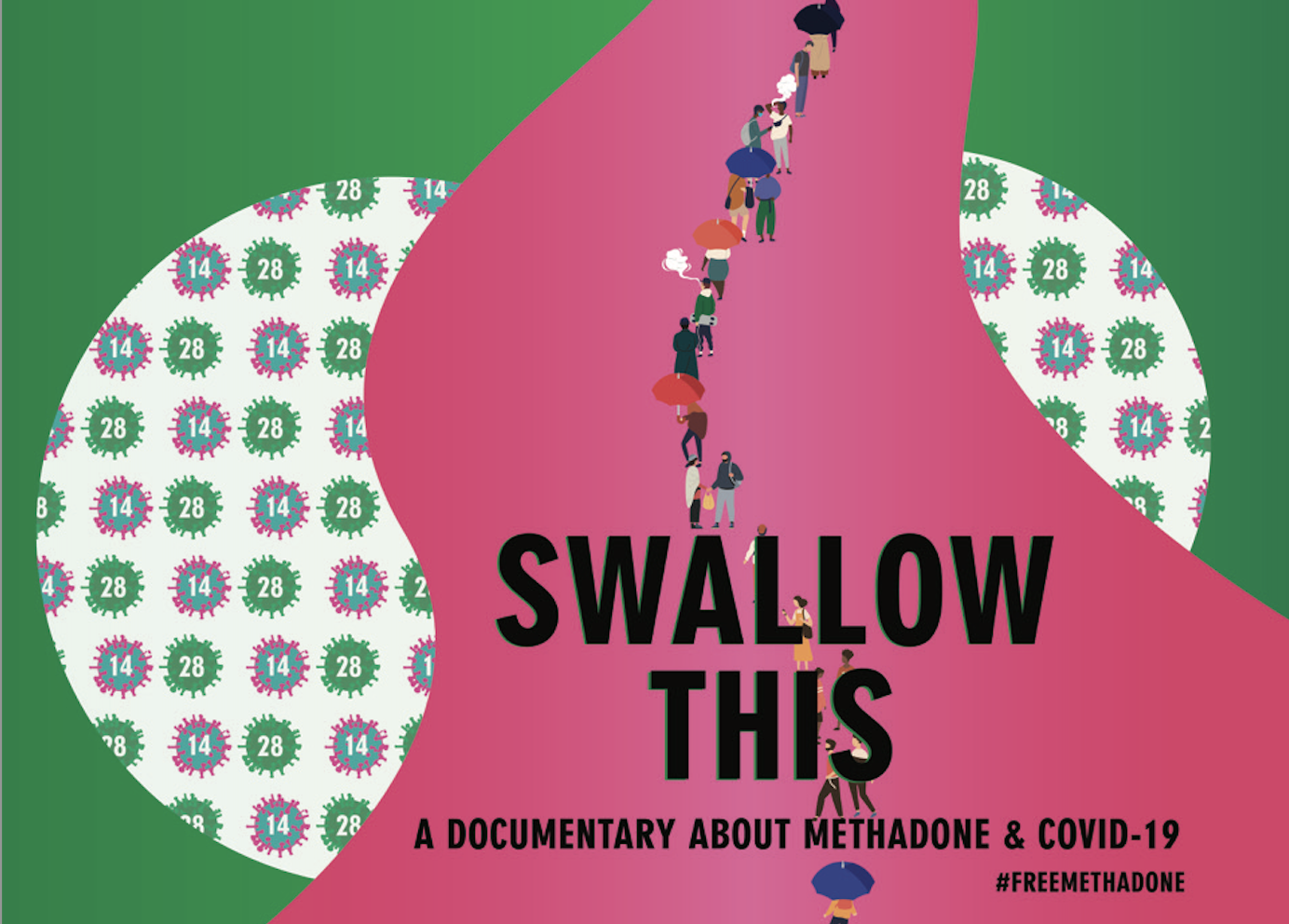Swallow THIS: A Documentary About Methadone and COVID-19 is currently on tour nationwide. Marilena Marchetti and I made the film to expose the pervasive, hidden culture of cruelty in methadone clinics—and how pandemic reforms were too little, too late, and frequently ignored.
“It shouldn’t take a pandemic to get them to listen to us,” Louis Vincent, the executive director of the National Urban Survivors Union and a methadone user, says in the film. But it did. And they’re still not listening hard enough.
Swallow THIS makes an unapologetic case to abolish the methadone clinic system. It’s a call to action to finally free all people who take methadone from daily attendance at opioid treatment programs (OTPs), with their oppressive surveillance and constant threats of removing access to lifesaving medication. These form huge barriers to care amid an unprecedented opioid-involved overdose crisis.
How many more people would still be alive today if methadone could be picked up at a local drug store once a month?
The United States’ pandemic experience showed that allowing more take-home doses did not increase fatal overdoses or “negative treatment outcomes,” and “diversion” was rare. But other countries don’t have methadone clinics at all, and have shown that methadone can be picked up at pharmacies like any other medicine.
How many more people would still be alive today if methadone could be picked up at a local drug store once a month?
We premiered at San Francisco’s Tenderloin Museum last month. As ground zero for the overdose crisis and punitive responses, it was a fitting neighborhood. Alex Spoto, the museum’s program director, praised the film’s framing “of the methadone clinic as an extension of the carceral state.”
A second screening was held at Saint John the Evangelist Church in the Mission District. Audience members included OTP staff, who shared their experiences of working on the inside and their desire for fundamental change.
One clinic director, Ruth Pottee, MD, later told us that the movie “captures the humanity of people who take methadone and the inhumanity of the clinics that deliver methadone.”
HealthRIGHT 360 cosponsored the San Francisco screenings. Paul Harkin, the agency’s director of harm reduction, said that the film “punches well above its weight as it squares off with methadone clinics. The directors make no bones about their view of the culture of cruelty; it cannot continue. They are calling to dismantle all clinics and move to a pharmacy-based approach.”
And the for-profit clinic cartel that controls access to methadone doesn’t like what it’s hearing. Especially the calls from Nora Volkow, director of the National Institute on Drug Abuse (NIDA), and Rep. Donald Norcross (D-NJ) to deregulate methadone and make it available outside of OTPs.
Together, we’re looking to transform the methadone conversation and end this cruel system for good.
In Boston, the documentary screened at Northeastern University in collaboration with The Action Lab. The panel discussion included the faculty director, Leo Beletsky, who also appears in Swallow THIS.
Our next tour stops include Knoxville, Tennessee; Burlington, Vermont; Roanoke, Virginia; and Los Angeles, California. You can check the Swallow THIS website for the full schedule.
The tour is supported by a grant from the Open Society Foundations, and fiscally sponsored by The Influence Foundation, which operates Filter. It’s also endorsed by the National Harm Reduction Coalition. Together, we’re looking to transform the methadone conversation and end this cruel system for good.





Show Comments